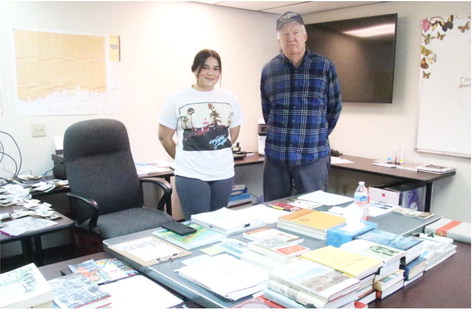Judge Denies Petition Request By Pinner
A post conviction release petition hearing was held for Charles Henry Pinner in Wolf Point Tuesday, Aug. 23.
Pinner was found guilty of aggravated kidnapping and sexual intercourse of a women on Amtrak. Pinner, who was an employee of Amtrak, was sentenced to 60 years in prison during the 2016 trial.
At the end of the post conviction release petition hearing on Tuesday, District Judge David Cybulski denied the petition request.
Defense attorney Colin Stephens will next appeal the case to the Montana Supreme Court. Issues featured in the petition included whether the defense in the case should had limited introduction of prior bad acts and whether significant mental state instructions were provided in the jury instructions.
In his ruling, Cybulski noted that he felt Pinner was represented well in the criminal case.
“I don’t feel ineffective counsel comes into play,” the judge said.
The judge explained that the process for jury instructions was what he has done for many years. The process included attorneys looking at the instructions on a table in the judge’s chambers throughout the trial.
Cybulski said he doesn’t feel that jury instructions often plays much of a role in a jury’s verdict.
“The jury will follow instructions, but if they feel you’re guilty, they are going to find you’re guilty,” Cybulski said. “Juries will look beyond the instructions.”
The hearing featured municipal judge Jennifer Streano of Missoula and former district judge Greg Pinski of Carbon County. Steven Scott, who was one of Pinner’s attorneys in 2016, also provided testimony.
Streano testified, “The jury was improperly instructed and that has a significant impact.”
Montana Assistant Attorney General Dan Guzynski pressed the issue of whether instructions really had a bearing on the case. Streano replied, “It could had made a difference. That’s all I can say.”
On the subject of allowing prior bad acts, Scott explained that the testimony of two other women on the train was an important part of the defense’s case. Providing a timeline was a goal of the defense and testimony from the women played a big role.
“That was planned by Mr. Toavs and I,” Scott said. “It wasn’t spur of the moment.”
Regarding instructions pertaining to Pinner’s mental state, Scott said, “The defense was he didn’t do it. It wasn’t him.”
Pinski’s testimony was that he uses a similar process for jury instructions with trials.
Pinski prepared for his testimony by reading the entire transcripts of the case.
“No one can predict what a jury will do,” he said. “But in this particular issue, the totality of evidence demonstrated the defendant’s guilt.”
He also felt that Pinner received adequate counsel. “Sometimes evidence overcomes the best of lawyers,” Pinski said.

